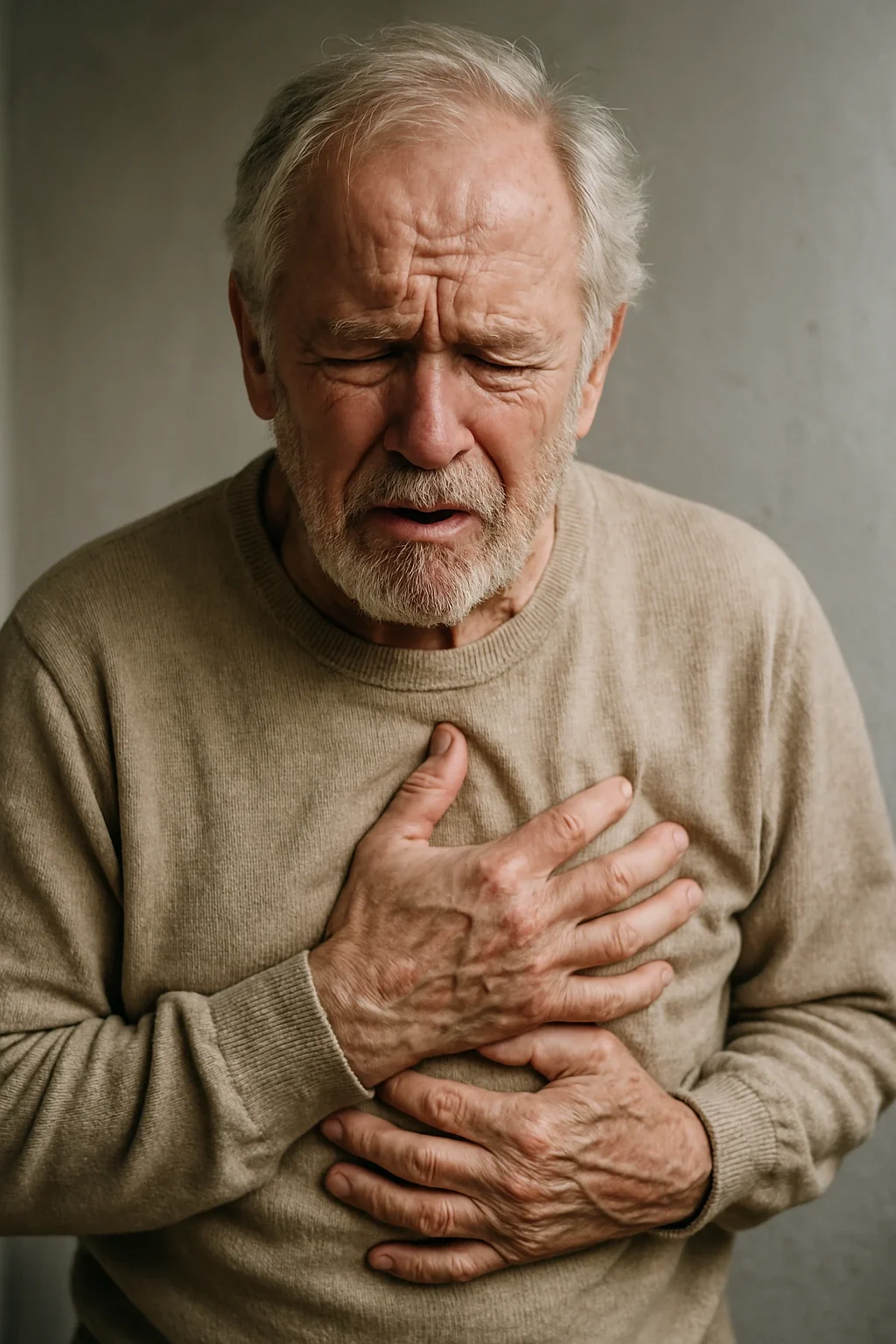Chest pain is discomfort or pain in the chest between the neck and upper abdomen. The quality of chest pain can vary. It can be sharp, dull, pressure-like, squeezing, or aching sensations. Chest pain arises from multiple organ systems and can be classified as typical and atypical chest pain.
Causes of chest pain:
- Heart-related causes:
- Angina (reduced blood flow to the heart muscle, causing pressure or squeezing)
- Heart attack (blockage of blood flow, causing severe, persistent pain)
- Pericarditis (inflammation of the heart lining, causing sharp pain worsening with breathing or lying down)
- Myocarditis and aortic dissection: (inflammation of the heart muscle or aorta)
- Lung-related causes:
- Pulmonary embolism (blood clot in the lungs, causing sharp pain and shortness of breath)
- Pleurisy (inflammation of the lung lining, causing sharp pain with breathing or coughing)
- Pneumothorax (collapsed lung, causing sudden chest pain and breathlessness)
- Pneumonia.
- Gastrointestinal causes:
- Gastroesophageal reflux disease (GERD) or heartburn causes burning chest pain
- Oesophageal spasms or swallowing disorders
- Gallbladder or pancreatic inflammation causes upper abdominal pain radiating to the chest.
- Musculoskeletal causes:
- Costochondritis (inflammation of rib cartilage)
- Muscle strain or rib injury causing localised tenderness.
- Other causes:
- Panic attacks with chest tightness, rapid heartbeat, and sweating
- Shingles
Typical Chest Pain
Definition and Characteristics
The features of a typical chest pain are :
- Character: Most of the time patient complains of chest discomfort or heaviness, rather than frank pain.
- Location: The pain is usually felt in the centre of the chest, beneath the sternum.
- Triggers: It is typically provoked by physical exertion or emotional stress.
- Radiation: Chest pain radiates to arms, neck, jaw, back or upper abdomen.
- Relief: Symptoms usually subside with rest or after taking medications like nitrates.
- Associated with sweating
Atypical Chest Pain
Atypical chest pain has the following characteristics:
- Character: Pain is sharp, localised, stabbing type
- Location: Pain that can be localised with one finger.
- Duration: Constant pain lasting for days or fleeting pain lasting for only a few seconds
- Aggravating factor: Pain is produced by movement and palpation.
Importance of Differentiation
Recognising the differences between typical and atypical chest pain is crucial for diagnosis and treatment. Typical chest pain is often associated with cardiac issues such as myocardial ischemia.


Leave a Reply